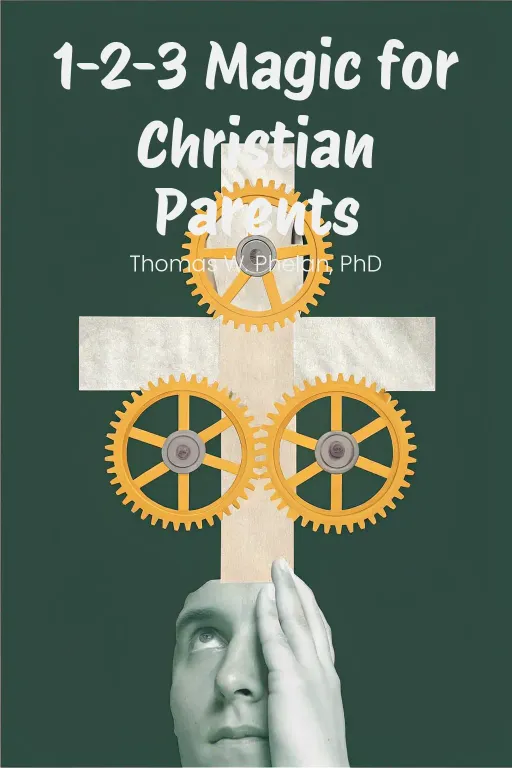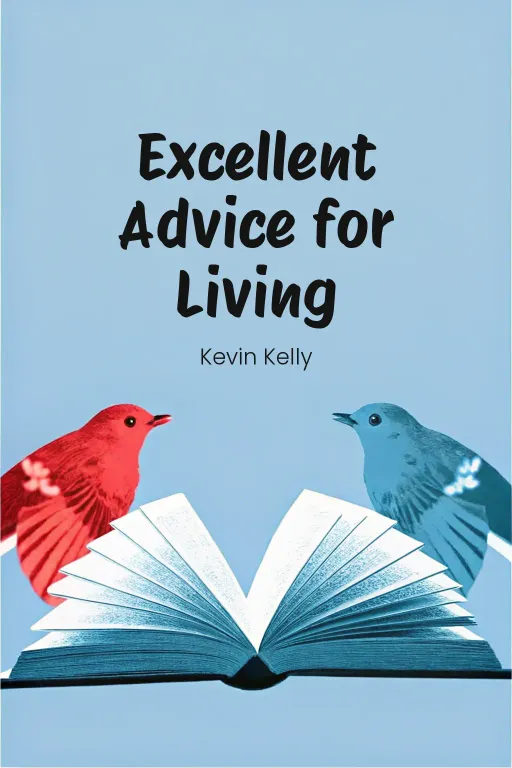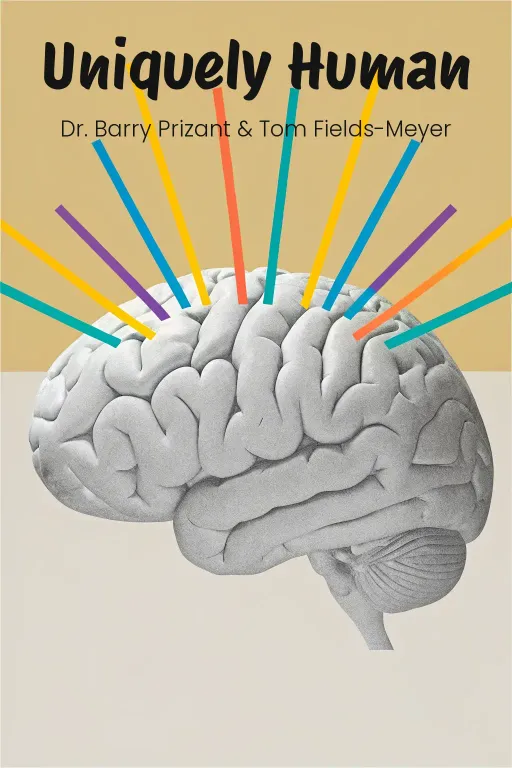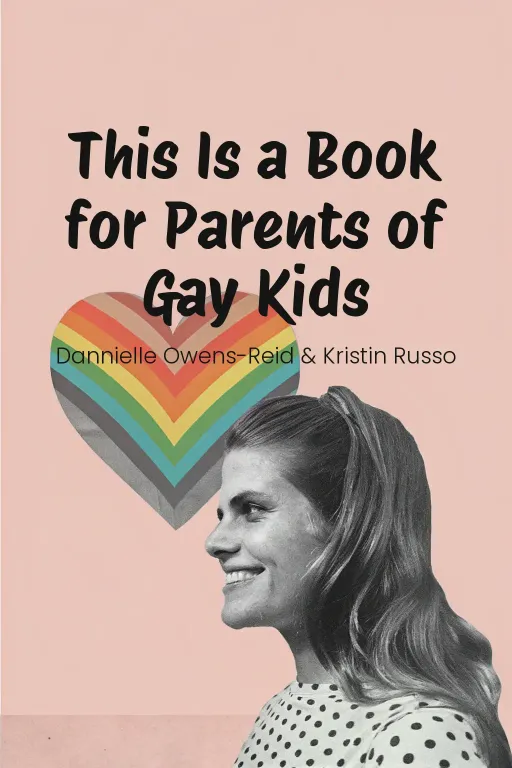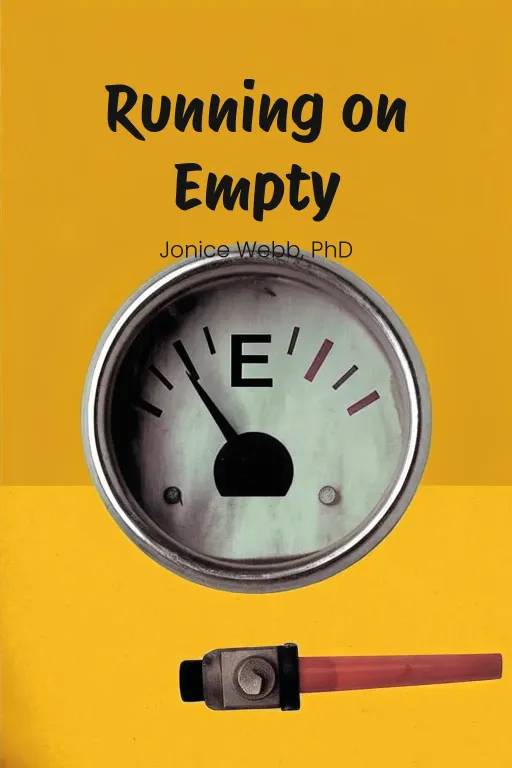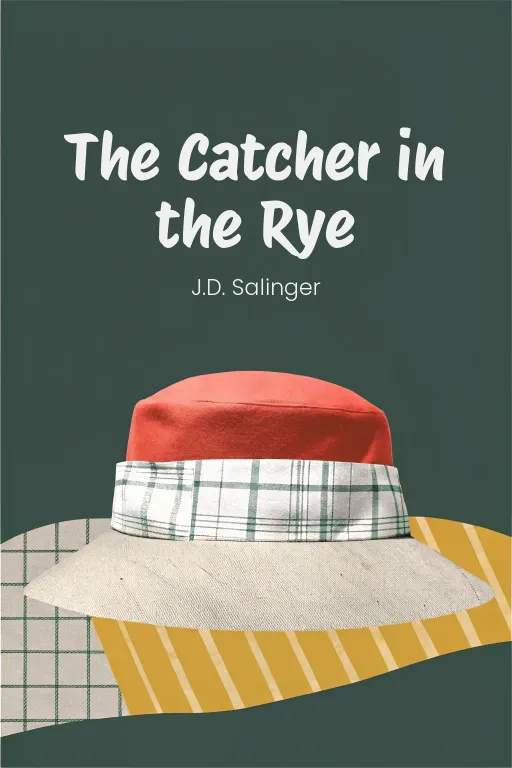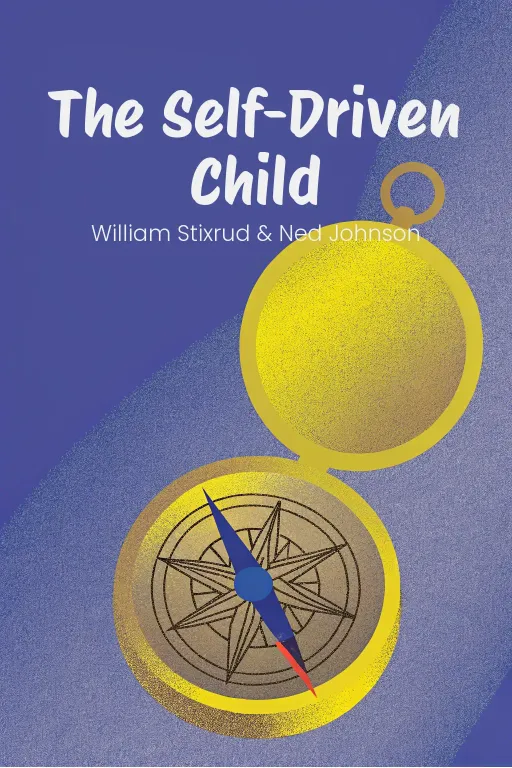
Raise a Happy Kid: Control Less, Guide More
Podcast by The Mindful Minute with Autumn and Rachel
The Science and Sense of Giving Your Kids More Control Over Their Lives
Introduction
Part 1
Autumn: Hey everyone, welcome back to the podcast! Today we're diving into something that might just change how we think about raising kids. What if the key to happy, successful children is actually giving them “more” control over their own lives? Rachel: Okay, Autumn, hold on. Are we talking about letting them eat cake for breakfast and skip school whenever they feel like it? Because that sounds like a recipe for total chaos. What’s the catch? Autumn: <Laughs> Not exactly! It's not about abandoning our responsibilities as parents. It’s about shifting our roles. Think of it as becoming a guide, not a drill sergeant. We're actually going to be talking about The Self-Driven Child by William Stixrud and Ned Johnson. It’s a fascinating book based on neuroscience and psychology, and it makes a really compelling argument for giving kids more autonomy. Rachel: Neuroscience, huh? Now you've got my attention. So we're bringing science into the parenting game? Does that mean I can blame brain chemistry when my kid refuses to clean their room? Autumn: Well, the authors explain how autonomy is absolutely vital for building mental health, motivation, and resilience. They argue that too much control – whether it's over their grades or screen time – can actually backfire. It stresses kids out and suffocates their natural drive to learn and grow. Rachel: So, less micromanaging equals happier, more well-adjusted kids? That sounds… almost too good to be true. Honestly, kind of revolutionary in today's world. Autumn: Exactly! We’re going to explore three big ideas today. First, we'll look at why autonomy is so essential for a child's well-being. Then, we'll talk about the hidden costs of stress and what parents can do to mitigate it. And finally, we’ll dive into practical ways to foster motivation and independence, even in a world that feels obsessed with control. Rachel: Alright, so we're trading in the hovering helicopter parent routine for a calmer, more strategic approach. I'm intrigued. Let's see if you can convince me that this whole autonomy thing actually works. Bring on the science!
The Importance of Autonomy in Child Development
Part 2
Autumn: So, let's dive in. The core idea we’re exploring is that autonomy isn't just a "nice-to-have" for kids—it's really crucial for their emotional and cognitive development. A lot of research supports this, showing that when kids feel like they have a bit of control over their lives, their mental health tends to improve, they’re more motivated, and they build up resilience for handling challenges. Rachel: Right, it's the difference between feeling like you're directing your own movie or just an extra in someone else's, isn't it? If kids are always being told what to do, are they really living their own lives, or just following someone else's script? Autumn: Exactly. And here's where it gets interesting: a lack of autonomy can lead to what psychologists call "learned helplessness." Basically, when someone feels like nothing they do matters, that they have no control over what happens, they might just give up altogether. For kids, this could look like they're disengaged, anxious, or even depressed. Rachel: Wait a second, so you're saying if we don't give kids enough autonomy, they might not just be stressed or unhappy, but they could actually stop trying to succeed altogether? That's a pretty big deal. Autumn: It is. And it can explain why some kids seem to "check out," even when their parents are really pushing them to succeed. The pressure, combined with feeling like they have no control, can create this kind of toxic situation where they feel overwhelmed but also powerless. Rachel: That’s the irony, isn’t it? Parents think, "If I control everything, I’m helping my kid succeed," but it turns out that too much control can actually cause the opposite—resistance, apathy, or something even worse. Autumn: That's why the book challenges that instinct to micromanage. Instead of hovering like helicopters, the authors suggest parents should take more of a "consultant" role—offering guidance, but letting the kids make the final decisions. Rachel: Ah, "consultant parenting." So instead of saying, "You will practice piano for an hour," it's more like, "How do you want to approach your practice today?" Autumn: Precisely! It's about including the child in the decision-making process so they start to take ownership of their choices. You're teaching them to think critically about their options and the consequences, rather than just blindly following instructions. It’s like preparing them for the real world, in a way. Rachel: Okay, let's get practical. How do parents actually make this happen? Because if you've been the family CEO for years, just stepping back probably feels like… well, like throwing your kid into the deep end without floaties. Autumn: It definitely takes intention. One thing the book suggests is offering choices. Say your child doesn't want to do their science project. Instead of ordering them to "just do it," you could ask, "How are you planning to get this done?" or, "Would you rather work on it tonight or tomorrow morning?" That way, they feel like they have control over the how and when, even if the task itself is non-negotiable. Rachel: I like that—it’s almost like tricking kids into taking responsibility! But let's be real: what happens when they choose the option of, "I'm not doing it at all"? Autumn: That's where natural consequences come in. If a kid decides not to do their homework, they might get a bad grade, and that is a valuable learning experience. The goal isn't to shield them from every mistake, but to let them experience the results of their decisions in a safe way, so they can learn and grow. Rachel: Okay, but how do you avoid the parental meltdown that inevitably happens when you watch your kid fail? I mean, we’re wired to step in and “fix” things. Autumn: That's where trust comes in. The authors talk about how letting kids wrestle with challenges is essentially saying, "I believe you can figure this out." It's hard as a parent, for sure, but it's incredibly powerful for the child. Over time, they build self-confidence and problem-solving skills. Rachel: So, let kids struggle, but support them enough so they don’t get completely overwhelmed. Got it. Basically, be a lifeguard, not a puppet master. Autumn: That's a great way to put it! And it connects to another important point the book makes: the role of stress. When kids feel like their entire lives are controlled, it triggers a constant stress response. There's some really interesting research in the book showing that today's youth are five to eight times more likely to suffer from anxiety than young people during major crises like the Great Depression or World War II. Rachel: Wait, seriously? A generation dealing with massive poverty and war was somehow less stressed than kids today with their AI photo-editing phones? Autumn: It sounds crazy, but it's largely related to control, or the lack of it. According to stress models, stress becomes overwhelming when people experience Novelty, Unpredictability, Threats to their ego, and a lack of Sense of control. Modern kids, even privileged ones, face constant academic and social pressures; and when you combine that with parents micromanaging their schedules, you get a perfect storm of high stress and low autonomy. Rachel: So, if we reduce novelty and unpredictability, minimize those ego threats, and give them more control, we're not just making them happier—we might “actually” be saving their sanity. Autumn: Exactly. Which brings me to one of the book's best examples: Jonah. His parents used to constantly hover over him about his homework, to the point where their relationship was just arguments and nagging. Not surprisingly, Jonah completely disengaged from schoolwork. But once his parents switched to a consultant approach, asking him about his plans and trusting him to take the lead, things turned around. He started getting his work done on his own terms, without all the fighting. Rachel: Just like that, Jonah flipped a switch? From fighting with his parents to being a self-motivated student? Autumn: It wasn't overnight, but the change was pretty remarkable. The key was that Jonah needed to feel like his work was his choice, not something forced on him. That sense of ownership made all the difference. Rachel: It's kind of poetic, isn't it? The less you try to control someone, the more likely they are to take control themselves. Autumn: Absolutely. And that's probably one of the book's most counterintuitive insights: when parents resist the urge to impose control, even during those tricky adolescent years, kids actually rise to the occasion more often than not. Rachel: So autonomy isn’t about letting kids run wild, it’s about showing them what freedom with responsibility looks like.
Managing Stress and Its Implications
Part 3
Autumn: So, pivoting from that fundamental change in how we approach parenting, let's dive into stress management and its ripple effects. We've been talking about instilling autonomy, right? Now, we're tackling a major hurdle to kids' well-being: stress. The key here is realizing that giving kids a sense of control is actually a solution that reduces stress and helps them bounce back. Rachel: Stress—it's like the unavoidable tax of childhood these days, for both kids and parents. It's always there, influencing everything. Okay, so we know kids are stressed; big surprise. But what makes this such a critical issue for how they develop? Autumn: Well, stress, especially when it's constant, can actually change how the brain develops. A little stress can be motivating, sure. But when it becomes chronic, it triggers the release of hormones like cortisol. And too much cortisol can mess with cognitive functions like memory, focus, and decision-making, especially in brains that are still developing. Kids in that constant state of stress also struggle more with managing their emotions and become more susceptible to anxiety and depression. Rachel: So, essentially, stress hijacks their brains, like that one coworker who won't stop with their phone calls while you're trying to work. So how do we know that stress levels are really that much of a problem now? I mean, kids always moan about homework, right? Autumn: The data is actually pretty shocking. The authors cite studies showing that adolescents today are five to eight times more likely to show symptoms of anxiety than kids who grew up during the Great Depression or even World War II. Rachel: Hold on a second. Are you telling me that kids dealing with wartime rationing and economic collapse had it easier, emotionally speaking, than modern teens with their Spotify playlists and instant delivery apps? Autumn: It sounds crazy, but it boils down to perceived control. Back then, yeah, people faced immense hardship, but there was often a sense of agency—they were working together to overcome huge challenges, and everyone's role felt important. Today, kids are bombarded with academic pressure, social comparisons, and parental expectations but feel like they have very little power to change things. Even success feels conditional, like, 'Do well on this test,' 'Get into this college,' and on and on. Rachel: So, it's like being a hamster on a wheel, you know? You're running faster and faster, but you're not getting anywhere, and you don't even understand why you're running in the first place. Autumn: Exactly. And this is where the N.U.T.S. model comes in. It stands for Novelty, Unpredictability, Threats to the ego, and lack of Sense of control. These are the conditions that make stress even worse. Think about an overscheduled teenager: Their life feels unpredictable as they juggle deadlines, their ego feels threatened when they don't perform perfectly, and they lack control because their schedule is dictated by parents and teachers. Instead of recognizing this, we often just pile on more. Rachel: And then we wonder why they burn out. I’m picturing kids being their phones - their stress battery just keeps getting drained, but no one's plugging them back in. So, what does the book actually suggest parents do to help kids break free from this stress cycle? Autumn: One really effective strategy is "radical downtime." That means intentionally giving kids guilt-free time to truly rest and recharge. Unstructured time helps activate something called the default mode network in the brain, which is essential for creativity, problem-solving, and processing emotions. Rachel: Okay, let's just clarify "radical downtime" for a second. Are we talking about just letting kids binge-watch Netflix for six hours, or does it need to be a little more... constructive? Autumn: It doesn't necessarily mean passive activities like endless screen time; think more like moments of real mental rest – daydreaming, going for mindful walks, reading for pleasure. It's about allowing the brain to unwind without any external pressures. The authors emphasize that this is crucial for reducing stress and building emotional resilience in the long term. They also highlight the importance of sleep. Most teenagers need eight to ten hours a night, but most are chronically sleep-deprived. Rachel: Sleep—the simplest, most underrated superpower that somehow always gets sacrificed first. Why is that? Because we keep telling kids, "You can catch up on the weekend." Meanwhile, they're walking around with the emotional stability of caffeine-fueled zombies. Autumn: Exactly, and we see the effects: irritability, difficulty focusing, and increased anxiety and depression. One school district actually pushed its high school start time to 8:30 AM from the usual 7:00 AM, and they saw clear results. Attendance went up, grades improved, and students reported feeling less overwhelmed. Rachel: Okay, downtime and sleep: Those sound relatively easy. What about the tougher stuff, like dealing with "trickle-down anxiety" from us parents? Autumn: That's a big one. The book emphasizes that kids absorb stress from their environment. If parents are constantly anxious or projecting their own fears—about grades, future success, even social interactions—they create an atmosphere of stress. Kids pick up on that tension and start to mirror it. Rachel: So, while parents are stressing over whether a kid's GPA will lead to Harvard or flipping burgers, the kid is thinking, "If I screw up, my life is over." Autumn: Exactly. The authors encourage parents to model a non-anxious presence. Instead of just reacting with panic, parents can validate their child's feelings and offer reassurance without blowing things out of proportion. For instance, if a child is worried about a test, instead of saying, "If you don't ace this, you'll fall behind," they might respond with, "Tests can be stressful. What do you think would help you feel more prepared?" Rachel: By switching to calm curiosity instead of panic, you're de-escalating the situation, right? And reinforcing that the stakes maybe aren't as high as the kid's brain is making them out to be. Autumn: Right. Which leads to another strategy: giving kids more choices and more agency. This ties directly into reducing stress because it restores that missing sense of control. Even something as simple as letting a child decide how they want to study for a test, or whether to do chores before or after dinner, gives them a feeling of empowerment. Rachel: So, it's not about completely stepping away. It’s more about letting them steer the ship while we act as navigators: helping them read the map, perhaps, but not grabbing the wheel. Autumn: That’s it exactly. And the science backs this up. Research shows that when kids feel like they have some control over their circumstances, even in small ways, their stress levels go down, and their motivation goes up. It’s a win-win situation. Rachel: All right, I get the importance of reducing stress and control. But what about extreme scenarios? Take a kid, like Adam, dealing with real trauma, or Zara, the perfectionist barely managing to keep her head above water. Can just adjusting parenting styles really help bridge those gaps? Autumn: It’s not a magic bullet, but promoting autonomy can significantly help in both situations. Adam, for instance, faces stress from factors largely beyond his control, like violence and poverty. For him, even small choices – like having input on his schoolwork or extracurriculars – can restore a sense of agency in the midst of chaos. And Zara’s stress stems from high expectations. Giving her some control, letting her prioritize her workload and say no to non-essential activities, could ease some of that perfectionism-induced pressure. Rachel: So, whether it’s stress caused by poverty or stress caused by privilege-driven burnout, the prescription is similar: less control from adults, more ownership for kids. It’s amazing that such a simple idea applies so broadly. Autumn: It really is. And when we focus on agency, it’s not just about stress reduction. It’s about showing kids that they are capable, even when things are tough. That belief—that they’ve got what it takes—can change everything.
Strategies for Fostering Motivation and Independence
Part 4
Autumn: Once you've got a handle on stress, the real magic happens: turning that into motivation and independence. Honestly, this is where the book “really” delivers, because it goes from big ideas to actual, real-world advice that parents and teachers can use. The whole goal is to give kids the power to run their own lives, knowing they've still got a safety net. Rachel: So we're going from why kids need autonomy to how to actually give it to them. And uh, let me guess, this is the part where parents start freaking out a little bit? Autumn: <Laughs> Probably! But the book has some great tools to make this easier, more manageable. The authors talk about things like fostering a growth mindset, giving age-appropriate choices, working together to solve problems, and finding that sweet spot between support and freedom. Rachel: Okay, "growth mindset." It's like the buzzword these days. Can you actually explain what that means in practice, here? Autumn: So, Carol Dweck came up with the term. Basically, it's believing that you can get smarter and better at things if you put in the effort. It's seeing challenges as a way to grow, not as proof that you're failing. The book has this awesome story about a girl who was struggling with math. Instead of just focusing on getting the right answers, her family started focusing on how hard she was working and how much she was sticking with it. Rachel: Oh, so they didn't throw a party when she finally got an A+, but they did give her props for grinding through some seriously tough problems? Autumn: Exactly! It’s about patting her back for the journey, not just the destination. It changed everything for her! She wasn't afraid anymore, because she saw every mistake as a chance to learn. And it works for everything, not just school. Sports, music, even making friends – when you encourage kids to focus on getting better, not being perfect, they're way more likely to try new things. Rachel: Totally. It's like switching from "either you win or you lose" to "either you win or you learn something." Alright, let's get practical again – how young are we talking when it comes to letting kids make decisions? Autumn: Honestly, you can start “really” young, like toddler-age. At that point, it’s about small stuff: "Do you want apple slices or banana?" or "Crayons or markers?" As they get older, the decisions get bigger. By the time they're teenagers, they could be choosing after-school activities or even helping to plan the family calendar. Rachel: And there's an example about that girl who switched from a fancy private school to a regular public school, right? That sounds like a huge call. Autumn: Exactly! Her parents were hesitant, but they let her do it because she felt like the public school was a better fit. And you know what? It made her feel so much more confident, like she was in charge of her own life, and taught her how to make good, thoughtful choices. She ended up thriving because she felt like she owned that decision. Rachel: So, basically, the lesson here is: trust your kids, even if their choices make you sweat a little? Autumn: Within reason, of course. Letting them make choices, as long as they're appropriate for their age, helps them learn how to think things through, figure out what might happen next, and just become more self-reliant. Rachel: Okay, but what about when things get complicated? Like if a kid is completely buried under homework and extracurricular stuff? Do you still just say, "Your call"? Or do you step in? Autumn: That's where you team up and solve the problem together. Instead of just telling them what to do, you sit down and say, "Okay, what's too much? What do you “really” love doing? What can we cut back on?" By getting them involved, you’re teaching them how to figure out what's important and how to think critically. There's a story in the book about a kid in middle school who was doing a million different things. After talking it through with his parents, he decided to stick with his favorite sport and drop some other activities. Rachel: So instead of just saying "No more soccer!", it's more like, "Hey, let's figure out a plan that works for everyone." That sounds way less like a battle. Autumn: Exactly! And it makes your relationship stronger. They learn how to make decisions and you show them that you trust them and support them. Rachel: Now, this balance between support and letting go… The book touches on kids with ADHD. How do you encourage independence when a kid needs extra help staying focused? Autumn: It's a tricky balance, for sure. When kids have unique challenges, you want to build a system that takes care of what they need but still lets them be independent. The book talks about Michael, who started acing math once his tutor let him bring his therapy dog, Ernie, to their sessions. Math used to make Michael super anxious, but having Ernie there gave him a sense of calm and control. Rachel: So, instead of just pushing him through the anxiety, the tutor found a way to make him more comfortable—and that comfort gave him the space to succeed on his own? Autumn: Absolutely. It’s a reminder that giving kids autonomy doesn’t mean ignoring what makes them, them. It’s about building a safe space where they feel empowered to grab the wheel when they’re ready. Rachel: All this sounds amazing in theory, but how do we keep it from turning into total chaos? Autumn: That's where ground rules and expectations come in. Autonomy isn’t the same thing as "no responsibilities." It’s about framing those responsibilities in a way that makes them want to take control. Instead of saying, "You have to study," you say, "How are you planning to tackle your studying?" You set the playing field, but they get to decide how they play. Rachel: So, it's giving them freedom within boundaries—letting them have responsibility, but with some clear safety nets. Autumn: Exactly. And that's what gets them ready for the real world. When you give kids the space to stumble, learn, and grow in a safe setting, you're giving them the tools to handle whatever life throws at them. Rachel: It's almost funny—it's like the less you do for them, the better you're actually setting them up to succeed.
Conclusion
Part 5
Autumn: So, to sum it all up, “The Self-Driven Child” really flips the traditional parenting script, doesn't it? It puts autonomy front and center as the key to raising kids who are not just resilient but also driven from within. We talked about how giving kids more control actually lowers their stress levels, sparks their own internal motivation, and equips them with those all-important decision-making skills. Rachel: Right, and it's pretty clear that stress – whether it's coming from insane academic pressure or parents who are just a little “too” involved – can really mess with a kid's emotional and mental well-being. So the answer isn’t more control, it’s less hovering, more guidance, and making sure they get enough downtime to just be. Autumn: Precisely! Whether it's offering choices, letting them learn from the natural outcomes of their decisions, or just making sure they get enough rest, these are all ways we can help kids take charge of their lives while still knowing we’re there for them. Rachel: Okay, here's what I'm taking away from this: autonomy isn't about completely disappearing as a parent, it's about knowing when to step back. Think of it as being the navigator, not the one steering the ship. Autumn: I love that! And for parents listening, the core message is really about trust. Trust that your kids have more in them than you might think. Give them the resources, the space, and, most importantly, the confidence to find their own path. Rachel: And maybe, just maybe, trust yourself enough to loosen that grip a little. It's not about letting go completely, it's about creating the space for them to actually grow.
